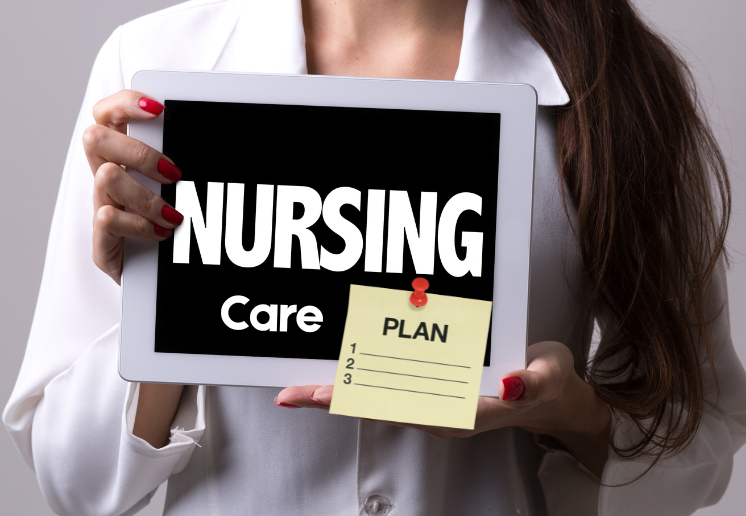Table of Contents
So you have completed your nursing education. Now, the next step in becoming a registered nurse is to take the NCLEX exam. But when? “When should I take the NCLEX exam?”. That is one of the most common queries we get from aspiring nursing professionals here, at the FBNPC.
Well, the timing usually depends on your personal circumstances and goals. Don’t worry; we’ll explain when you should take the NCLEX exam and how we’ll help you prepare for it. But first, you need to learn about the actual test dates. Without further ado, let’s begin.
When Can You Take the NCLEX?
Generally, you can take the NCLEX after completing your nursing program and receiving your graduation certificate. Once you’ve met this requirement, you’ll need to:
Step 1: Apply for licensure: Contact your provincial nursing regulatory body to initiate the licensing process.
Step 2: Receive authorization: After completing the necessary paperwork and potentially paying fees, you’ll receive authorization to take the NCLEX. This authorization often comes in the form of an Authorization to Test (ATT).
Step 3: Schedule your exam: Once you have your ATT, you can schedule your NCLEX exam at a designated testing center.
You have to understand that ATTs have a “validity period”, so you have to schedule your exam within the specific timeframe. If you don’t, it would entail rescheduling the exam, which means additional fees.
But let’s forget about the date for a second. When would be the appropriate time to take the NCLEX exam? Well, that depends on a range of factors and individual circumstances. Let’s take a look.
When Should You Take the NCLEX Exam?
As you already know, there is no designated date for the exam. It depends on the availability of testing centers and your personal schedule. But there are some general considerations to keep in mind when choosing an appropriate time. Let’s take a look.
When Did You Graduate From the Nursing School?
The first factor that will help decide when you should take the NCLEX exam, is when you graduated from the nursing school. Here are a few details to consider.
- Fresh Knowledge: If you’ve recently graduated, your nursing school knowledge is likely still fresh in your mind. This can make it easier to recall information and apply it to the NCLEX.
- Momentum: The momentum from completing your nursing program can also motivate you to take the NCLEX sooner rather than later.
- Knowledge Retention: Has there been a significant gap between your graduation and the NCLEX? Then you might need to spend more time reviewing the material to refresh your memory.
- Skill Deterioration: While your nursing knowledge might not have completely faded, your skills might have become a bit rusty. This could require additional practice to regain proficiency.
Often the best time to take the NCLEX test is right after you graduate from the nursing school. The closer you are to graduation, the more likely you are to have a strong grasp of the nursing concepts and skills required for the NCLEX.
How Good is Your Memory?
Your memory plays a crucial role in your ability to recall and apply nursing knowledge during the NCLEX. Let’s see how your memory can influence your exam preparation and scheduling.
Strong Memory
Individuals with strong memories can often learn and retain information more quickly and easily. You might be able to study less frequently and still maintain a good grasp of the material.
A strong memory can boost your confidence and reduce anxiety about your ability to recall information during the exam.
Difficulty Retaining Information
If you struggle to remember information, you might need to allocate more time for studying and reviewing.Consider using active learning techniques, such as flashcards, practice quizzes, and mnemonics, to aid memory retention.
Regularly reviewing the material can help solidify your understanding and improve your memory.
Ultimately, a good memory can make NCLEX preparation more efficient.
How Did You Do in Your Practice Test?
Practice tests are a valuable tool for assessing your readiness for the NCLEX. You’ll know if you are ready to take the test based on what kind of scores you get in the practice test.
Case 1: High Scores
- Confidence Booster: Consistent high scores on practice tests can boost your confidence and reduce anxiety about the NCLEX.
- Indicator of Readiness: It may suggest that you’re well-prepared and ready to take the exam.
- Identify Strengths: Analyze your performance to identify areas where you excel, which can reinforce your confidence.
Case 2: Low Scores
- Identify Weaknesses: Practice tests can help you pinpoint areas where you need to improve your knowledge or skills.
- Targeted Study: Focus your study efforts on these areas to strengthen your understanding and increase your chances of success.
- Seek Guidance: If you’re struggling with certain concepts, consider seeking guidance from your instructors, mentors, or study groups.
With practice tests, you can understand whether or not you will perform well in the main exam. You can also get our NCLEX study plan to follow the best course of preparation.
When Do You Want to Start the Nursing Practice?
Your desired start date for nursing practice can influence your decision on when to take the NCLEX. Here’s detailed breakdown:
- Timeline Alignment: If you have specific career goals or job opportunities in mind, you might need to schedule the NCLEX to align with their start dates or application deadlines.
- Program Requirements: Some nursing programs or employers might have specific requirements regarding NCLEX passage before you can start working.
- No Immediate Plans: If you don’t have immediate career plans or are open to flexible start dates, you can choose a time for the NCLEX that best suits your preparation and personal circumstances.
- Explore Opportunities: Taking the NCLEX sooner can give you more flexibility to explore various job opportunities and potentially secure a position you’re passionate about.
Your professional aspirations play a key role in taking NCLEX and starting your nursing practice.
Do You Have Any Personal Circumstances?
Often, the most significant factor in deciding when to take NCLEX are personal circumstances. Here’s a breakdown:
- Time Constraints: You may have family responsibilities, such as caring for children or elderly relatives. In that case, your available time for studying and taking the exam might be limited.
- Scheduling Flexibility: Consider scheduling the exam during times when you have the most support from family members or when you can arrange childcare.
- Balancing Act: If you’re working part-time or have other commitments, you might need to carefully balance your time between studying and your other responsibilities.
- Flexible Scheduling: Try to schedule the exam during a time when your workload is lighter or when you can take time off.
- Stress Management: Avoid scheduling the exam during times of high stress or emotional turmoil, as this can negatively impact your performance.
- Self-Care: Prioritize self-care and stress management techniques to ensure you’re in a healthy state of mind when taking the exam.
When trying to schedule the NCLEX, choose a time that minimizes stress and maximizes your chances of success.
What are the Peak Testing Seasons?
Sometimes, testing centers are busier and it might be more challenging to secure a desired testing date or time. Let’s give you an idea on the peak testing times:
- Increased Demand: Nursing school graduation seasons often coincide with increased demand for NCLEX testing as newly graduated nurses seek to become licensed.
- Deadlines: If there are new licensure requirements or changes in regulations, it can lead to a surge in testing as nurses seek to meet the new standards.
- Reduced Availability: During holiday seasons, some testing centers might have reduced hours or be closed altogether, limiting the availability of testing dates and times.
Although peak testing times may vary from state to state and country to country, it’s generally a good idea to avoid taking the NCLEX during these times if possible.
If you need help with preparing, scheduling, and taking this registered nursing exam, opt for our NCLEX prep course.
Typical NCLEX-RN Exam Process and Timeline
As shown in the previous section, the general timeline of taking the NCLEX exam may vary based on your individual circumstances and your state licensing board. Let me give you a general idea on how the process will go:
Complete the Nursing Program
First, you will have to complete the nursing program from an accredited nursing school or college. That will make you eligible for the NCLEX exam for practicing as a registered nurse in Canada, Australia, and the USA.
Apply for Nursing Licensure
Contact your state’s board of nursing to initiate the licensing process. You’ll likely need to submit an application, pay fees, and provide documentation such as your graduation certificate and transcripts.
Authorization to Test (ATT)
After reviewing your application and the required documents, the board of nursing will issue an ATT if you meet all the necessary requirements. The moment you receive the ATT, you will be able to schedule and take the NCLEX-RN.
Schedule the NCLEX Exam
Once you have your ATT, you can schedule your NCLEX-RN exam at a Pearson VUE testing center or the official website. Be sure to schedule the exam within the validity period of your ATT.
Take the NCLEX Exam
The NCLEX-RN is a computer-adaptive test that can take anywhere from 75 to 260 questions. The exam continues until it determines whether you’ve passed or failed. If the questions start getting harder, it means you are answering correctly. It is one of the easier ways to know you have passed the NCLEX right away.
Results
You’ll receive your NCLEX-RN results within a few weeks after taking the exam. If you pass, you’ll be granted a nursing license in your state. If you fail, you’ll be eligible to retake the exam after a waiting period.
State Licensure
Once you pass the NCLEX-RN, you’ll need to activate your nursing license with your state’s board of nursing. This typically involves paying a licensing fee and providing any additional required documentation.
How long it will take from degree completion to getting the license will depend on the state board’s processing time, the testing center availability, and of course, your personal circumstances.
But what if you are internationally educated? When should you take the NCLEX exam then? Don’t worry; let me give you an idea.
When Can Internationally Educated Nurses (IENs) Take the NCLEX Exam?
For any internationally educated nurse aiming to practice in the US or Canada, taking the NCLEX-RN exam is an essential first step. But before that, there are a few requirements to fulfill.
Credential Evaluation
First off, the IENs need to have their nursing education and qualifications evaluated by an approved organization. That would be the likes of Commission on Graduates of Foreign Nursing Schools (CGFNS) or a similar credentialing body.
That ensures the nursing regulatory body considers them educated and qualified to practice in their desired state or province.
Application to Nursing Regulatory Body
After the credential evaluation, IENs will need to apply to the nursing regulatory body in their chosen jurisdiction. That can be a state nursing board in the U.S. or a provincial body in Canada. The authorities will review the application and determine if the applicant is eligible for the NCLEX-RN.
Additional Requirements
Some states and provinces may have additional requirements before granting eligibility for the NCLEX-RN. These might include proof of English language proficiency and a background check. And sometimes, the candidate may even need to complete a course or bridging program if there are gaps in the education or practice.
Authorization to Test (ATT)
Once approved to appear for the NCLEX, the nursing regulatory body will issue an Authorization to Test (ATT). This document permits the IEN to schedule their NCLEX-RN exam.
At this point, IENs need to ensure that they are well-prepared before scheduling the exam as it’s going to be a critical assessment of their nursing knowledge and skills.
When to Take the NCLEX-RN?
The timing largely depends on how long it takes to complete the credential evaluation and regulatory approval processes. For many IENs, this entire process can take several months to a year or more. However, once the ATT is granted, they can book their exam as soon as a testing center is available.
Preparing for the NCLEX-RN as an IEN
After scheduling the NCLEX-RN exam, the IEN will need to prepare well for the NCLEX-RN. It will test critical thinking, clinical judgment, and application of knowledge. Many IENs choose to take preparation courses tailored for the internationally educated candidates. It focuses on NCLEX-RN format differing from exams taken in their home country.
So basically, every IEN can take the NCLEX-RN once they complete credential evaluation, meet the regulatory body’s requirements, and receive their ATT. While the process may take time, each step ensures readiness to practice as a registered nurse anywhere in North America.
If you want help with passing the NCLEX and becoming the best registered nurse, prepare for it with FBNPC.
FAQs on the Best Time to Take the NCLEX
Q1. Should I take the NCLEX as soon as I graduate from nursing school?
While it’s generally a good idea to take the NCLEX soon after graduating, the best time depends on your individual circumstances. If you feel well-prepared and confident in your knowledge, taking it sooner can be advantageous. However, if you need more time to review or address any weaknesses, postponing the exam might be a better option.
Q2. Can I reschedule the NCLEX if I’m not ready?
Yes, you can typically reschedule your NCLEX exam if you’re not ready or if something unexpected comes up. However, there might be fees associated with rescheduling, and you’ll need to follow the specific procedures outlined by your state’s board of nursing.
Q3. How long does it take to get NCLEX results?
The time it takes to receive your NCLEX results can vary, but it typically takes a few weeks. You’ll receive a notification from your state’s board of nursing once your results are available.
Q4. What if I fail the NCLEX?
If you fail the NCLEX, you’ll be eligible to retake it after a waiting period. The waiting period varies by state, but it’s typically a few weeks. It’s important to review your performance on the failed exam to identify areas where you need to improve and focus your studies for the retake.
Let’s Summarize
Choosing the right time to take the NCLEX-RN exam is a crucial decision that can impact your chances of success and your career trajectory. Here’s what you need to consider:
- Assess Your Readiness: Evaluate your knowledge and skills to determine if you’re adequately prepared for the NCLEX.
- Consider Personal Circumstances: Factor in your family responsibilities, job commitments, and emotional well-being when scheduling the exam.
- Align with Career Goals: Choose a time that aligns with your desired start date for nursing practice and career aspirations.
- Avoid Peak Testing Seasons: If possible, schedule your exam during less busy periods to increase your chances of securing a desired testing date and time.
Remember, the ultimate goal is to take the NCLEX-RN when you feel confident and for that, you need the best preparation. To that end, connect with FBNPC will be the best choice. So connect with us today!



